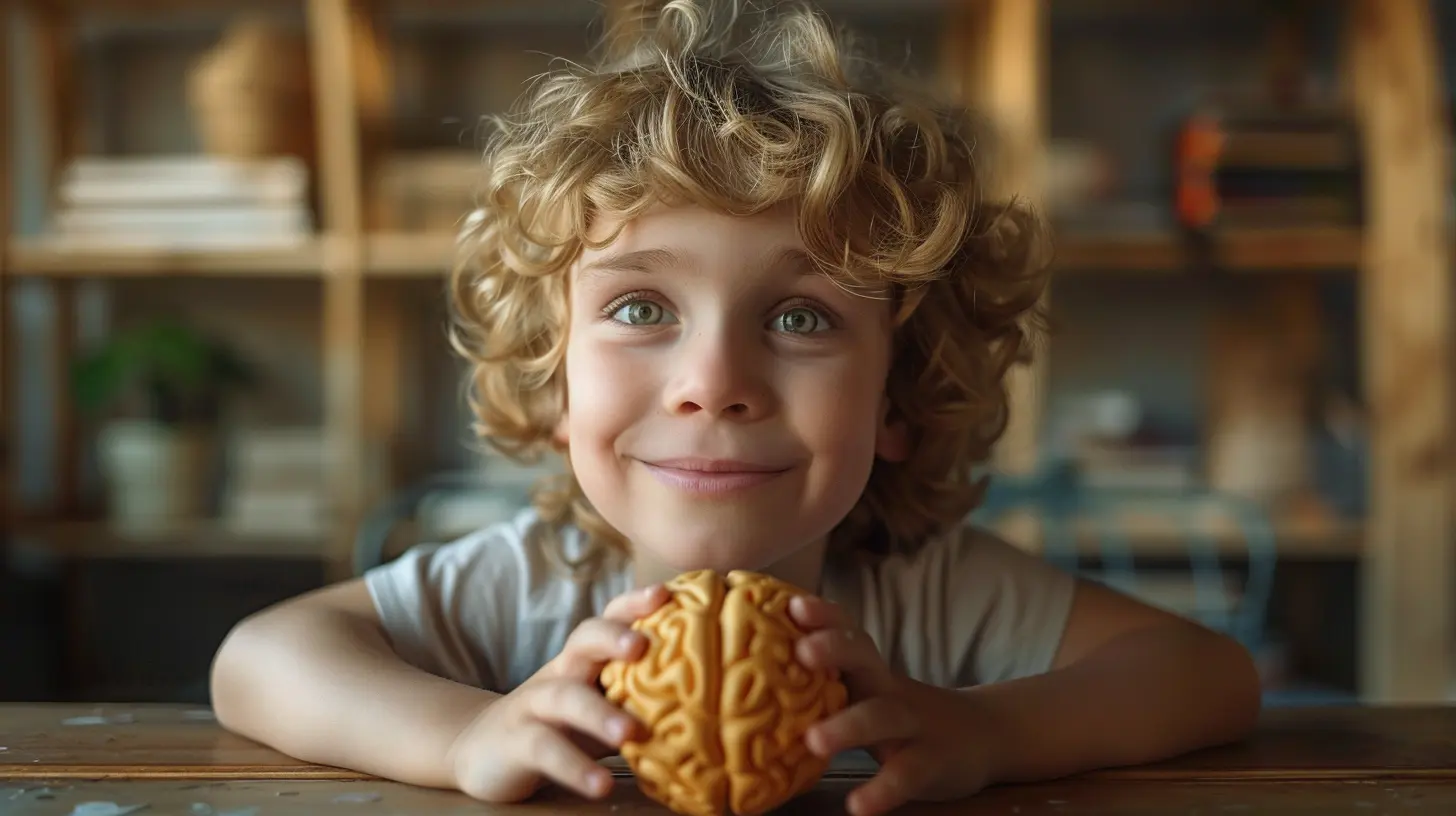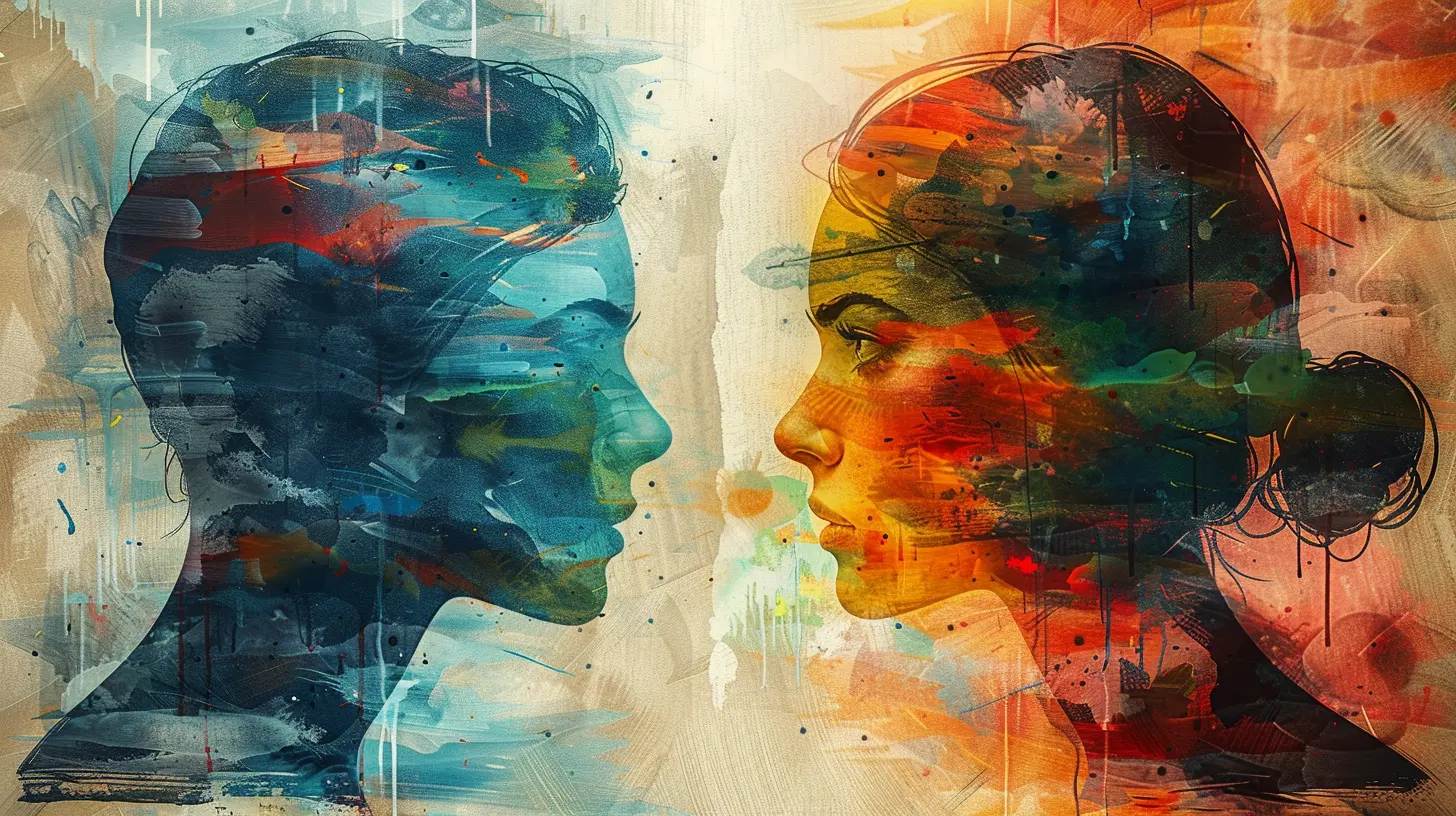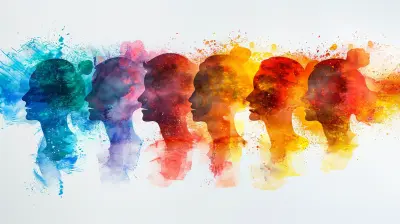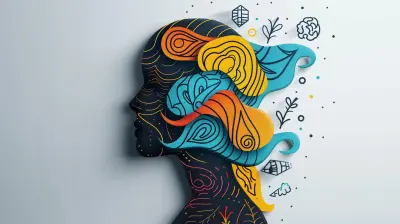3 January 2025
Empathy. It's one of those concepts we hear a lot about, right? But how often do we stop and think about what it really means, especially when it comes to our development as humans? More importantly, how is empathy connected to how we think and process information—our cognitive development? Today, we’re diving into the fascinating relationship between these two key aspects of human psychology.
Whether you're a parent, teacher, or just someone curious about how our minds work, understanding the link between empathy and cognitive development gives us insight into not only how we relate to others but also how we grow mentally. So, let's unpack this and explore why empathy is crucial for cognitive growth and what that means for developing brains.

What is Empathy?
Before we dive into the nitty-gritty of how empathy impacts cognitive development, let’s take a step back. What exactly is empathy, anyway?In simple terms, empathy is the ability to understand and share the feelings of another person. It’s like stepping into someone else’s shoes, even if only for a moment, to feel what they feel. But empathy isn't just about emotions; it’s also about perspective-taking—understanding where someone else is coming from.
There are two main types of empathy:
1. Affective Empathy: This is the emotional side of empathy. It’s when you feel what someone else is feeling, like when you tear up during a sad scene in a movie.
2. Cognitive Empathy: This is more about understanding someone else's thoughts and feelings without necessarily feeling them yourself. It’s like being able to read between the lines and get a sense of what someone might be going through.
You might be wondering: why do these two types of empathy matter when we’re talking about cognitive development? Well, let’s break that down.

Cognitive Development in a Nutshell
Cognitive development refers to how we grow and change in our ability to think, learn, and problem-solve throughout life. It encompasses everything from learning to count as a toddler to understanding abstract concepts like justice and morality as an adult. The famous developmental psychologist Jean Piaget laid out a theory of cognitive development that describes how children move through different stages of thinking, from simple to more complex mental processes.Piaget’s model highlights the importance of interaction with the environment for cognitive growth. But here's the thing: we don’t just interact with objects or information. We also interact with people—constantly. And that’s where empathy comes in.

The Empathy-Cognitive Development Connection
So, how exactly are empathy and cognitive development linked? On the surface, they might seem like separate aspects of our psychology—one rooted in emotions, the other in thinking. But the truth is, they’re deeply interconnected. Let’s explore some key ways this relationship plays out.1. Empathy Enhances Social Cognition
One of the most significant ways empathy impacts cognitive development is through social cognition. Social cognition refers to the mental processes we use to understand and navigate social situations. It involves skills like interpreting body language, recognizing emotions, and understanding social cues.Empathy plays a central role in social cognition. When we empathize with others, we’re actively engaging in perspective-taking, which is a cognitive skill. Think about it: understanding someone else's viewpoint requires you to step outside of your own thoughts and consider someone else's, which involves higher-order thinking.
When children practice empathy, they’re essentially working out the muscles of their brain that are responsible for social cognition. And the stronger those muscles get, the better they’ll be at navigating complex social interactions as they grow up.
2. Theory of Mind and Empathy
Closely related to social cognition is the concept of Theory of Mind (ToM). Theory of Mind is the ability to understand that other people have their own thoughts, beliefs, and desires that are different from your own. It’s a crucial part of cognitive development, particularly in childhood.Empathy and Theory of Mind are like two sides of the same coin. To have empathy, you need to understand that other people have their own experiences that may differ from yours (that’s ToM in action!). And by practicing empathy, children naturally develop a more sophisticated Theory of Mind.
For instance, when a child sees another child crying and offers them a toy to make them feel better, they’re not just being kind—they’re demonstrating an understanding that the other child has their own emotional experience. This is a big cognitive leap, and it’s driven by empathy.
3. Empathy Encourages Problem-Solving
Picture this: you’re in a situation where a friend is upset. You want to help them, but you don’t know the exact reason for their distress. What do you do? You try to figure it out! You ask questions, you observe their behavior, and you use your empathy to piece together what might be wrong.In this way, empathy encourages problem-solving. When you’re trying to understand someone else's emotions or perspective, you’re engaging in a form of problem-solving. You’re gathering information, making inferences, and testing hypotheses—all key cognitive skills.
Now imagine this process happening regularly during childhood. Every time a child tries to understand how someone else is feeling, they’re practicing these problem-solving skills. Over time, this contributes to more advanced cognitive development, particularly in areas like reasoning and critical thinking.
4. Empathy Cultivates Emotional Intelligence
Emotional intelligence (EQ) is the ability to recognize, understand, and manage our own emotions, as well as the emotions of others. While cognitive intelligence (IQ) focuses on logical reasoning and problem-solving, emotional intelligence is all about navigating the emotional landscape of life.Empathy is a cornerstone of emotional intelligence. Without empathy, it’s difficult to connect with others on an emotional level or to understand why people behave the way they do. And here’s the kicker—emotional intelligence is a major player in cognitive development, too.
Why? Because managing emotions is essential for effective learning and problem-solving. When children (and adults) can regulate their emotions, they can focus better, make more thoughtful decisions, and collaborate more effectively—all of which are key components of cognitive growth.
5. Empathy Fosters Moral and Ethical Reasoning
As we grow, we don’t just develop cognitively in terms of logic and problem-solving; we also develop in terms of our sense of right and wrong. This is where moral reasoning comes into play. Moral reasoning is the process by which we determine what is ethical or unethical, fair or unfair, just or unjust.Empathy plays a crucial role in the development of moral reasoning. When we empathize with others, we’re more likely to consider how our actions impact those around us. This kind of thinking is foundational for developing a strong sense of ethics.
For example, when a child sees that pushing someone hurts them, they begin to understand that certain behaviors can cause harm. This empathetic understanding forms the basis for moral reasoning, which becomes more sophisticated as cognitive development progresses.

Nurturing Empathy for Cognitive Growth
Now that we’ve seen how empathy and cognitive development are linked, the next question is: how can we nurture empathy to support better cognitive growth?1. Model Empathy
Children learn by observing the adults around them. If you want to encourage empathy in children, it’s important to model empathetic behavior yourself. Show them what it looks like to listen actively, consider other people’s feelings, and offer support when needed.2. Encourage Perspective-Taking
Help children practice perspective-taking by asking questions like, “How do you think they feel?” or “What do you think is going on in their mind right now?” These kinds of questions encourage kids to step outside of their own experience and consider someone else's.3. Foster Emotional Literacy
Teach children to recognize and label their own emotions and the emotions of others. The better they are at identifying emotions, the more easily they’ll be able to empathize with others.4. Create Opportunities for Cooperative Play
Cooperative play—where children have to work together to achieve a goal—naturally fosters empathy. When kids collaborate, they have to pay attention to each other’s needs and emotions, which strengthens both their empathy and cognitive skills.5. Read Stories with Empathetic Characters
Books are an excellent way to build empathy. When children read stories where characters experience different emotions and challenges, they practice perspective-taking and empathy in a safe, imaginative context. This can help build both their emotional and cognitive skills.Wrapping It Up
Empathy and cognitive development aren’t two separate processes—they’re interconnected in ways that shape who we are and how we grow. By fostering empathy, we’re not just teaching children to be kind; we’re also helping them develop critical cognitive skills that will serve them throughout their lives. Whether it’s enhancing social cognition, boosting problem-solving abilities, or fostering moral reasoning, empathy is a key ingredient in the recipe for cognitive development.So, the next time you encourage a child to be empathetic, remember: you’re not just nurturing their emotional side—you’re also giving their brain a powerful workout. And who wouldn’t want that?










Rosanna McLean
Great insights! Understanding empathy really enhances our approach to cognitive growth. Thanks!
February 3, 2025 at 3:34 AM